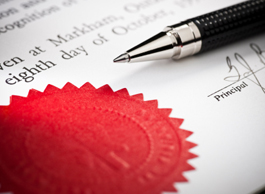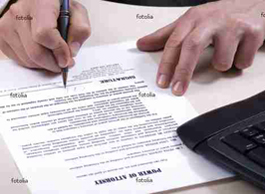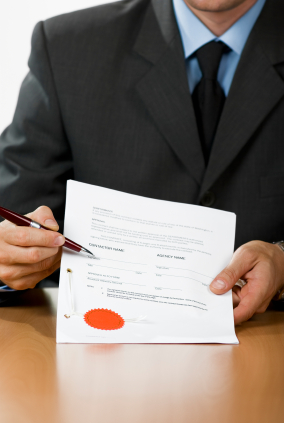Notary Public Cambridge
A notary public is a licensed public officer and qualified lawyer primarily concerned with the authentication and certification of signatures and documents for use abroad. A notary verifies, authenticates and records deeds, documents and facts for cross-border transactions performing a function in international trade and business.

Notarial certification is sometimes called “notarisation”. Often it is sufficient that a Notary witnesses a signature then certifies that the signature on a document is genuine. A Notary also helps where some countries require further formalities, such as obtaining an apostille from the Foreign, Commonwealth & Development Office or legalisation at a foreign embassy. In addition a notary may also certify copies and translations of documents.
All Powers of Attorney need to be witnessed in person. Witnessing by video is not generally recommended as best practice by the English Notaries Society. I can arrange witnesses but for the witnesses protection their signing will take place outdoors.
Paul Gittins is a fully qualified Notary Public, based in Cambridge, with clients in Cambourne, Ely, Royston and Huntingdon, UK.
You can receive the full range of notary public services, including apostilles and legalisation. In addition, notaries are also authorised, as described here, to conduct general legal practice.
Same day and out of hours appointments are usually available. In addition, I can visit your business premises, and in some cases your home. However, travelling to your premises increases costs.
Why Notary Public Services ?
 You may need to see a notary to obtain a range of documents for use abroad such as:
You may need to see a notary to obtain a range of documents for use abroad such as:
- A certified copy of a passport;
- Certified copies of other documents such as academic qualifications or exam certificates;
- Documents which you must sign in the presence of a notary:
- A power of attorney;
- An acknowledgment;
- An affidavit or declaration;
- Papers connected with the adoption of a child from abroad;
- Forms for opening and closing foreign bank accounts;
- Applications to renew visas and passports;
- Buying and selling property abroad;
- The authentication of personal documents for immigration or emigration or to work or travel or marry abroad;
- Applications for childrens passports where one parent will not be present;
- Travel consent document containing permission from one or both parents to allow a child to travel with a responsible adult;
- Sponsorship forms;
- The authentication of company documents including certificates of incorporation and good standing;
- Patent assignments
 Depending on the country any notarised document may also require an apostille or legalisation by an embassy or consulate. Please see our handy guide to apostille or legalisation requirements by country
Depending on the country any notarised document may also require an apostille or legalisation by an embassy or consulate. Please see our handy guide to apostille or legalisation requirements by country
Seeing a Notary Public
Notaries keep normal office hours. I can arrange to meet you out of hours or out of my office. This may cost more and take longer.
Obviously each case must be different but usually the Notary Public expects you to:
- Make an appointment;
- Bring good evidence of identity. Generally this will have to be a current valid passport and something to confirm your address like a
- Recent Council tax bill; or
- Electricity, gas or water bill; or
- Bank statement; or
- A current UK driving licence
- Understand any document (including its name) particularly a document which is not in English – an English version is usually necessary;
- Bring any relevant papers or documents that relate to the matter (such as any instructions received).
- Pay by cash or card or cheque or bank transfer upon signature/release of the notarised documentation.
It helps a lot if you can send any relevant documents in advance by e-mail/post/hand delivery before your appointment. Then please follow up with a phone call to fix the appointment.
Cost of Seeing a Notary Public

There are no set charges. Neverthless, The Notaries Society reminds its members that they should charge a proper fee which is
- Appropriate for the level of service offered;
- Which enables them to meet the costs of acting:
- Properly;
- In accordance with the Rules made by the Faculty Office;
- With the demands of good professional practice.
For most matters, I’ll tell you the fee in advance. For more complex matters, I’ll tell you how my fee is calculated, usually based on time. However, there may be fees to pay to third parties, e.g. the Foreign Office or an Embassy. Here’s more information about cost and fees.
How Long Will it Take?
If the document is straightforward, already prepared, and in the correct form, then usually it takes me between 20 minutes and half an hour. Clearly, if the document is not straightforward, or I must write the document, or make a proper copy, then it will take longer.
Some countries want documents legalised, i.e. countersigned by their London Embassies. This takes several days unless you personally take the documents to the Embassy, and wait. The fees and procedures vary widely but I can provide a reasonably accurate idea of the time and cost.
More guidance for appointments with a Notary Public
These notes are preliminary guidelines, intended to save my and your time and expense.
Notarial Duty
The international duty of a notary public involves a high standard of care, not only towards you as the client but particularly to the transaction itself, as well as towards other parties and governments or officials of other countries. Both you and they are entitled:
- To assume that a notary will ensure due compliance with the relevant requirements at home and abroad, whether or not specifically requested to do so; and
- To rely on the notary’s register and records.
Vigilance is essential at every stage to minimise the risk of errors, omissions, alterations, fraud, forgery, impersonation, money-laundering, etc. It is not a mere rubber stamping exercise.
Signature/sealing
Your signature/sealing should normally be witnessed by the notary public. Please do not sign the document before our meeting.
Documents sent in advance
If possible please send me the documents in advance, it often saves time, expense and mistakes. Ideally, you or your advisors will send me the originals or exact photocopies or scans of:
- The documents to be notarised;
- Any covering correspondence or instructions from the destination country;
- Evidence of your identity
Personal Identification
Please produce by way of formal identification both at the outset and again, most essentially, when you visit to sign the documents:
- Your current passport;
- Your current driving licence, security pass, or other formal means of identification;
- Any other means of ID, particularly the ID specified in the documentation;
- If the above do not incorporate a good photographic likeness, a spare print of a satisfactory recent photograph for retention in our records;
- Current evidence of your address e.g. statements from:
- Council
- Gas
- Water
- Land Line telephone
- Bank.
Occasionally, it may suffice for you to be personally accompanied and identified to me by
- Someone reliable, AND
- Who is well known both to you and to me.
Documents concerning a Company
A much deeper level of checking is commonly required where I am asked to witness and/or notarise the signing of a power of attorney, contract or some other such document that concerns a Company. Usually, the following is required:
- Check with the Registrar of Companies. Usually this means I obtain all online information available, e.g. current appointment records, annual returns etc.;
- Check certain company records, unless the document is routine or of limited value. These records could include the:
- Minute book,
- Company registers, i.e.
- Articles and memorandum of association;
- Register of directors, company secretaries, shareholders.
Sometimes, it is necessary to obtain a Certificate of Good Standing from the Registrar of Companies. Normally it takes 3 to 7 working days to obtain this certificate. It is sent by the Registrar by post. It costs more to obtain this certificate the same or next day.
Proof of Names
You should also produce relevant certificates that confirm your names, especially if you have changed your name, vary the spelling, or the sequence of your names. These include certificates e.g. of:
- Birth,
- Baptism,
- Marriage,
- Divorce,
- Examinations,
- Qualifications,
- Any deed poll or statutory declaration made on change of name.
Impersonation or Falsification
Notaries need to guard against the increasing trend of:
- Impersonation;
- Falsification of documents, certificates, photographs or signatures;
- Falsification of qualifications: I will check with the academic body that a certificate for a qualification is genuine. It may take several days to obtain a reply;
- Appearers acting (innocently or otherwise) without due authority, etc.
Notarial Independence
It is in everyone’s interests that this is paramount. My duty as a Notary extends to:
- You as the client;
- Any other party;
- Each intended recipient;
- All who may receive the notarised documentation;
- An overriding duty to the transaction itself.
Chain of Evidence
Notarisation is part of the international law or chain of evidence and must be scrupulously undertaken and reliable both in your own interests and the recipient’s.
Examining the Evidence
The notary is required to carefully examine and check whether the evidence produced is original, genuine, valid, complete, accurate, and unaltered. This extends to:
- The document(s)/certificate(s) to be notarised; and
- The personal I.D. evidence of each Appearer.
Incomplete or Ineffective Documents
The notary public has to check that each document to be notarised is fully and duly completed.
Unfortunately, many documents considered to be “ready for signature”, are inadvertently defective, incomplete or inadequate. Incomplete and ineffective documents may even have been prepared by professional advisers or agents. Perhaps they were in too much haste, or not quite familiar with current notarial practice, procedure and developments.
Written Translations
In some cases, official translations may be required before and/or after execution of the documents. Foreign documents, including covering correspondence and instructions, should be translated into English before execution of the documentation. English texts may need to be (re-)translated here or abroad into the foreign “specimen” translations.
Although I am not a linguist I can often recommend a suitable professional translator. Professional translators should include their names, address, relevant qualifications and/or experience and should incorporate their own certificate, signed and dated, to the effect that their translated document is a true and complete translation of the original document, or a true copy, of which is annexed [t]hereto. Translations may need to be declared or sworn by the maker in proper form, according to circumstances.
Failing this, the reliability of the translation is unproven; it may be suspect, potentially lethal, and it may be rejected.
Oral Interpreter
Similar to the issue of written translations, I may have to arrange for a competent professional interpreter to be available at interviews.
Separate Entities
In the case of an entity such as a company, partnership, society, club, etc., please discuss your notarial requirements personally with me, across a desk, at a preliminary meeting or by phone.
The current authority of the organisation’s representatives to sign/seal on the organisation’s behalf must be verified. Verification includes proof of the organisation’s:
- Original formation;
- Current continuing existence;
- Present powers and regulations for undertaking this type of transaction;
- Actual authorisation of this specific transaction;
- Office holders who are authorised to sign, etc; and
- Proof of the valid appointment of the present holders of such office(s), etc.
Sometimes I, as a Notary Public, am required to attend a Company meeting. We can hold such meetings either at my offices, your offices, or elsewhere.
The locations I visit include Girton, Histon, Impington, Milton, Bar Hill, Swavesey, St Ives, Huntingdon, Godmanchester, Ely, Bourn, Cambourne, Papworth, Saffron Walden, Great Abington, Haverhill, St Neots, Royston, Orwell, Harston, Fulbourn, Foxton, Babraham, Great Chesterford, Hinxton, Little Chesterford, Waterbeach, Newmarket and London.
Responsibility
Subject to the guidelines described above, my responsibility is limited to the notarial formalities and appropriate incidentals. However, I am sometimes specifically instructed to draft or advise on the documentation, and provided with adequate time and details.
